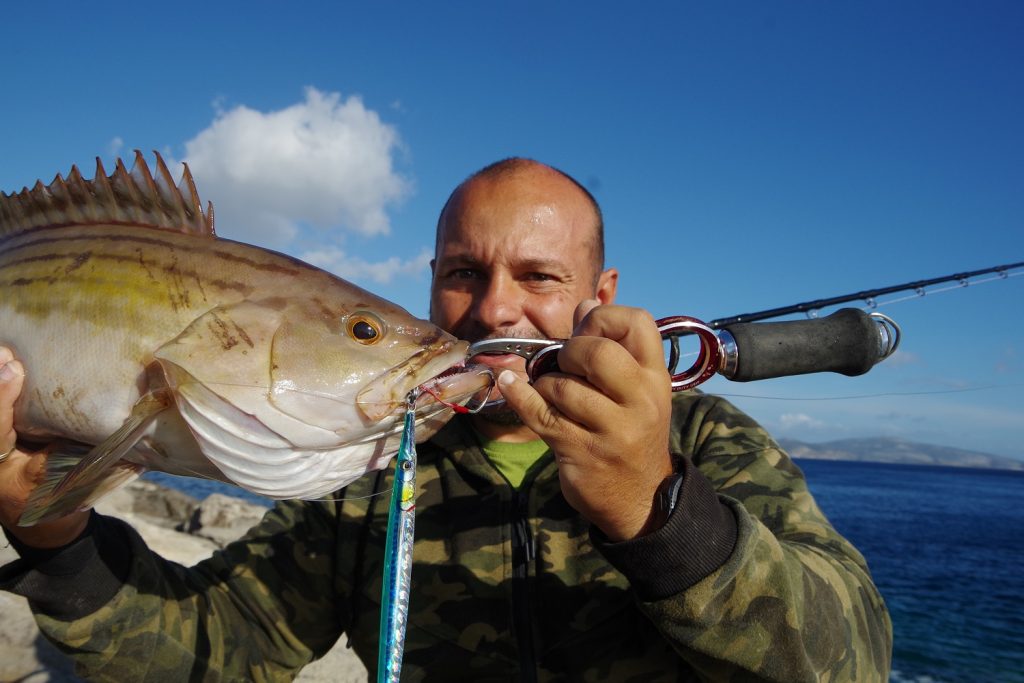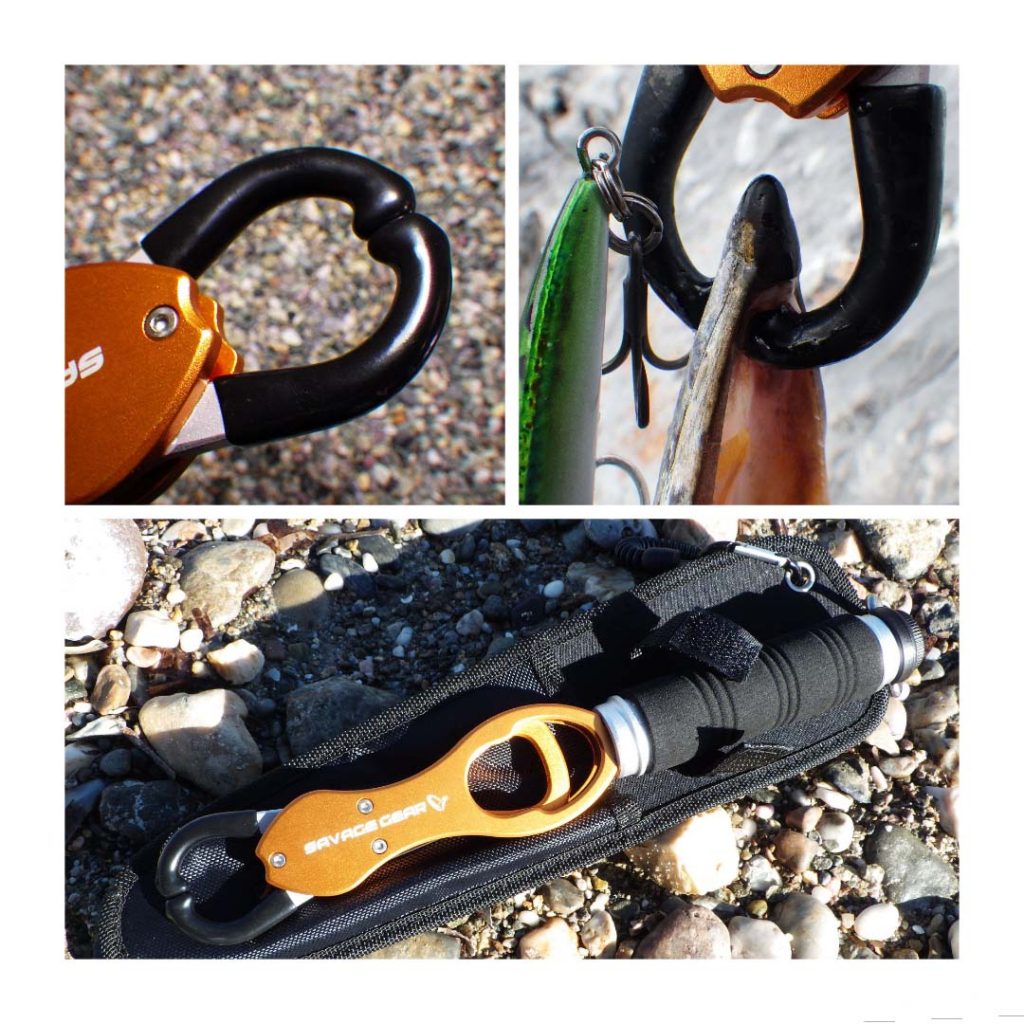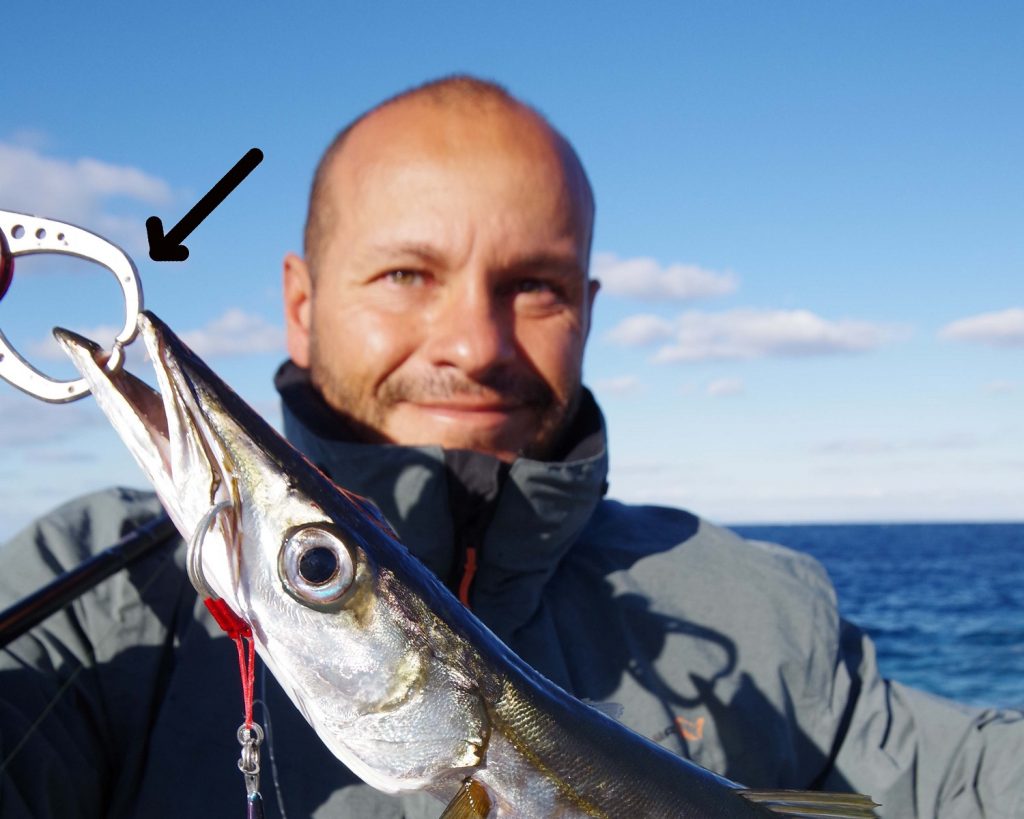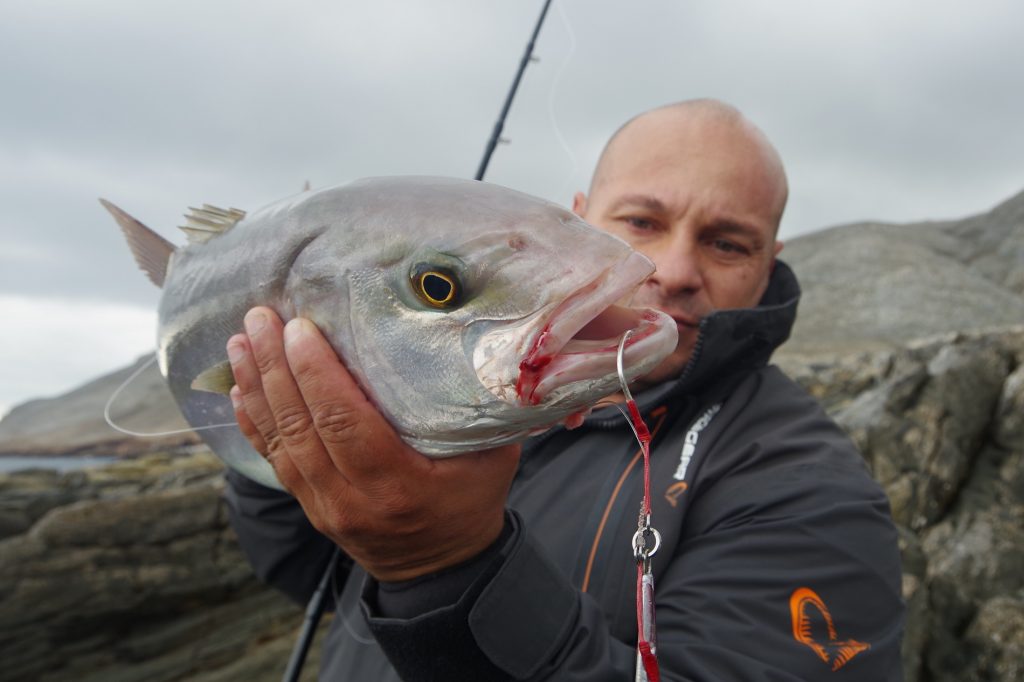The “Evil” lip grip (Fish Grip)!

I always wanted to talk about the use of lip grip (fish grip) in our fishing expeditions! Considering that we are saltwater anglers, a united community of people around the globe, brothers in a few words, we must be informed well about our gear! The reason I’m writing down this article is because of complaints from many freshwater anglers mostly, about the lip grip usage. They claim that lip grip is causing excessive trauma to the fish. So the first thing I did is to try to find some evidence about it. I couldn’t find totally scientific in general, but some reports talked about dislocated jaws in Carps (!!!) and other freshwater fish mostly, along with punctures on the lower jaw, etc! Ok we will go to this soon!
Let’s see what is a lip grip and how it can serve an angler and a fish according my humble opinion. Lip grips for start, have a reason to be produced by many famous brands and sell so much in the world! They are “pliers like” tools that contrary with their evil reputation by some, they firstly created for better handling of the fish, so to be more possible to be released! They are meant to hold the fish properly by hanging, away from the sharp rocks, and allow the angler to remove the hooks safely for him and without the risk of dropping the fish on the rocks, which could cause a LETHAL damage by removing scales and breaking fins etc. Also lip grips allow us to take a nice photo before we release or kill the fish. For the ones that will decide to keep the fish for eating, killing it should be done as fast and properly and not let it suffer. But let’s see the reality with the naked eye, point by point!

Holding a fish with hands
The “haters” of lip grips, say that we should hold the fish with hands! As mentioned before, most of them are freshwater anglers and since I do fish in freshwater I have seen the differences by myself! When I do spinning for barbell, trout, or chub, fish like them give a hell of a fight when they are in the water, but once they are out they stay very calm, allowing us to properly handle them. Furthermore, they live much more out of the water compared to most saltwater species. Carp species can survive more than half an hour, while trout that is less resistand can still survive for 12-15 minutes. Last but not least, most saltwater species have very sharp spines and razor sharp gill covers while freshwater species don’t. Having said that, I would really love to see someone holding a big angry snapper with a lure in the mouth on a rocky unstable ground just with bare hands. Snappers, amberjacks and even groupers tend to twist violently on the first minutes that they are out of the water, forcing us to drop them if hold improperly! This will cause them severe damage for sure. Furthermore if we are alone, in order to take a photo we have somehow to set the camera to shoot! For doing so we have to leave the fish on the sharp ground! This once more will cause excessive damage to the fish, removing scales and cause severe infections. With the lip grip we can hold the fish by one hand and by other set the camera. Still difficult but possible! The time we have is very limited! Some fish will die no matter what we will do, like the tuna species (albacores, bonitos etc) since their gill blood vessels collapse during fight resulting in bleeding and certain death, so the lip grip will do no more harm! Other fish have only a couple of minutes, like snappers and amberjacks, which are very strong fighters and will twist and fight hard even out of the water! When they will be calm, allowing us to take a picture, they will be already one step to death! But the real question is until they will remain calm, where will we put them? On the ground? Not! Keep them in the water? Definitely not (especially amberjacks)? Believe me there is no way for this. And if someone tells me that many anglers have photos holding fish by hands, my answer is the same! Despite the fact that they have a whole group of filming and helping, thus making things faster and safer, still the fish in most times is in the last step before death! I remember walking and spinning near coastlines in the past, catching fish with spinning and releasing! On my way back I found some of them, especially saddled breams, dead on the first centimeters of land! I have to say that before when I released them, they swim away fast, but in the end they died! Don’t think that everything it swims away, it will stay alive if not properly released! This means that we should stay with feet in the water, bring the fish close, find a magic way to remove the hooks, and allow the fish to swim away without taking it out of the water at all! Yes! I wonder how possible is this? Last but not least is the temperature guys! Many species cannot tolerate at all high differences of temperatures! That means that in the summer when surface water temperature is 25 (bottom 20) and out of the water is 35, a fish is shocked when lifted out of the water. So holding with a lip grip is way better than allowing it to touch the burning rocks, or even worst putting it on a small pool with boiling water. And remember! Holding a fish by hands means without a steady part to hold! Gills are very very fragile and once you add your hands there, you actually cause bacterial infections. This is why I’m saying that holding a big and freshly “out of the water” fish without lip grip and without harm is nearly impossible!

They say that lip grip can puncture the fish lower jaw membrane!
Yes they have right about it! So if you plan to release the fish do not change the angle of fish grip! Fish should be hanged vertically and in perfect line with the lip grip! If you turn the angle of the lip grip, the tip of it can penetrate the thin membrane of some fish like seabass, barracudas etc. Some lip grips are plastic and wide, made specifically for holding steady and safe the fish without the danger of puncturing. Furthermore Savage Gear has equipped a lip grip with soft plastic covers on the tips to avoid such trauma!

They claim that a fish hanging from the jaw, can cause jaw dislocation!
Never noticed something like this, but for sure I didn’t take them for an X– Ray! But let me answer this with an undeniable example! If this can happen only by the weight of the fish, then what the hell happens during a fight? If a fish that weights for example 3kg, can suffer jaw dislocation by the tension of its own weight in straight line, then during a fight that applies way more power than its own weight on the hooked jaw, what happens? I bet no smart guy ever thought of this, before they judge lip grips! A 3kg fish depending the species, can apply double power than its weight during fight, (pelagic species even more). So for example if by holding a 4kg amberjack from a fish grip is enough to cause dislocation, then during fight that can easily apply more than 7kg of power, if hooked from the lower jaw (very common) and considering that sometimes is pulled hard by the sides, that presumably a jaw could dislocate more easily, should always occur in dislocation! Right? I don’t think so…

The bottom line!
As said many times before in the past, it is wise to keep your eyes open and your mouth shut, when you don’t know the real situations about a technique or a specific region, or fish! Finally it is a bit hypocritical to worry if a fish gets hurt from the fish grip, while before some minutes we pulled it violently out of its natural environment, dragging it from a couple of hooks that we made sure to penetrate into the flesh of its mouth in the best case, while other times from the eyes, gills etc…






